Class 4
Our class is made up of Year 5 and 6 pupils, with Mr Horton and Mr Hadley as class teachers and Mrs Wigley and Miss Mathison as teaching assistants.
This class page is designed to give a brief overview of what we are covering in class. We share more detailed information about what we get up to using the Class Dojo app. Parents can request login details via their child's class teacher.
Websites that will help your child at home
- https://ukhosted127.renlearn.co.uk/6704359/ Here is our personalised link for Accelerated Reader. Aim to complete your quiz within 48 hours of finishing your books!
- https://www.mathletics.com/uk/ To recap your learning in maths this week.
- https://ttrockstars.com/ To learn all of your times tables.
Class 4 Themes
Our themes for 2024-2025:
Theme 1 - Autumn 1 2024 - Autumn 2 2024:
‘Know your Place - Mining’ (10 weeks)
In the first half-term, we spend some time establishing our routines and learning behaviours as we settle into class after 6 weeks off.
Over the next 10 weeks, our class will be diving into the fascinating history of mining and exploring its significant impact on Derbyshire and particularly our local area.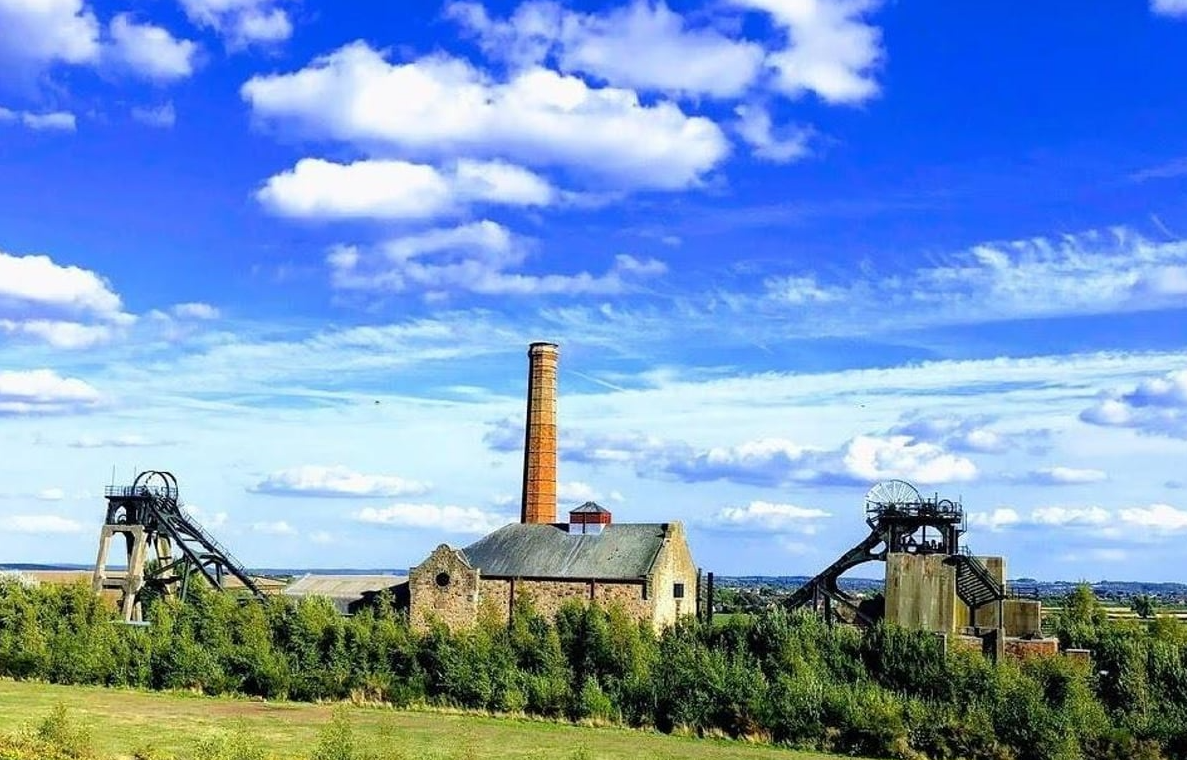 Many of the villages around our school were mining communities and many people in your families might have worked in those mines. .
Many of the villages around our school were mining communities and many people in your families might have worked in those mines. .
We will learn:
- About why coal was important.
- About the impact of the Industrial Revolution
- About the history of coal and how it has changed over time
- What life was like in mines.
- To use map work skills to identify where coal seams are, as well as using 6 figure grid references.
- About the mining strikes and pit disasters.
- To consider the future of coal and renewable energy sources.
- About the work of the Pitmen Painters.
Below is a knowledge organiser showing the key areas of learning you should aim to know by the end of the topic.
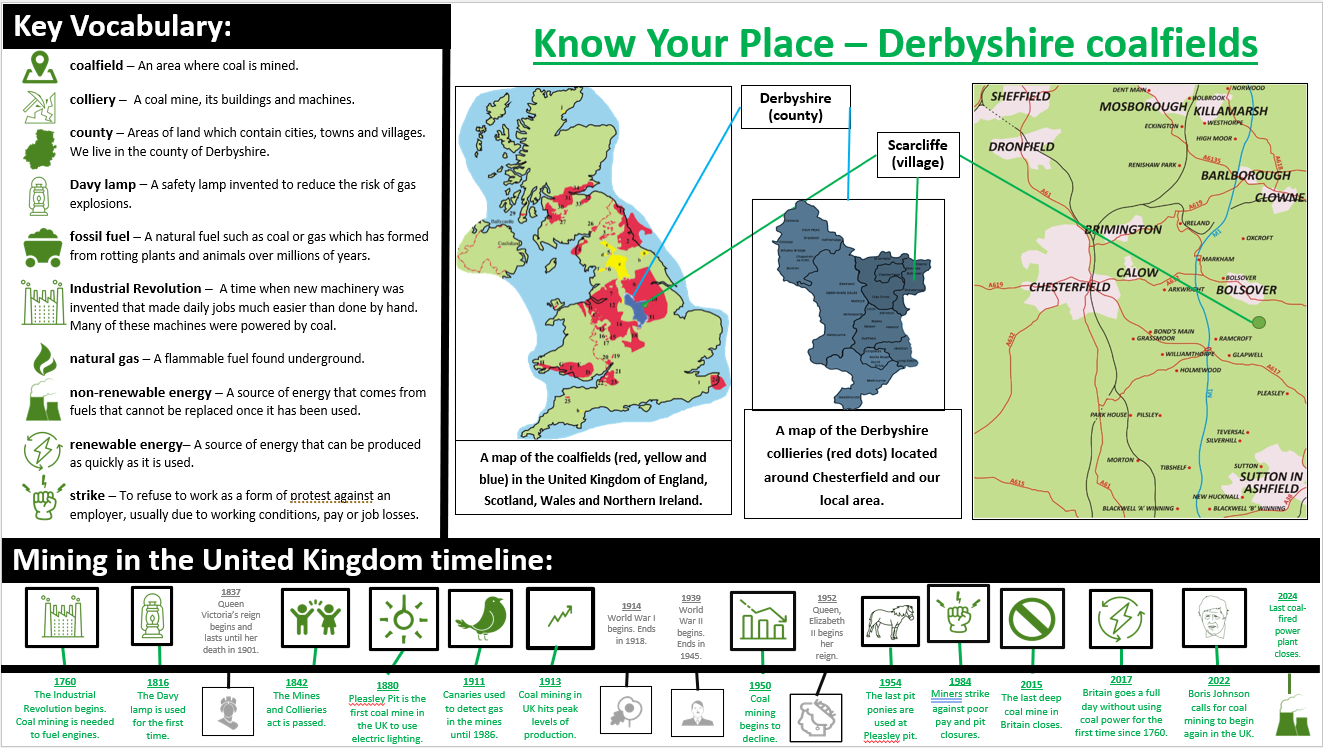
Click on the link below to save a copy of our knowledge organiser for the topic.
Know Your Place - Derbyshire Coalfields KO (PDF)
Maths:
We will be learning about:
Place Value
Place value involves learning about the value of the digits in numbers. Understanding that place value columns follow consistent patterns – ones, tens, hundreds, then (one) thousands, ten thousands, hundred thousands, before reaching millions – is key.
Below is our learning journey and the small steps we cover for this unit.
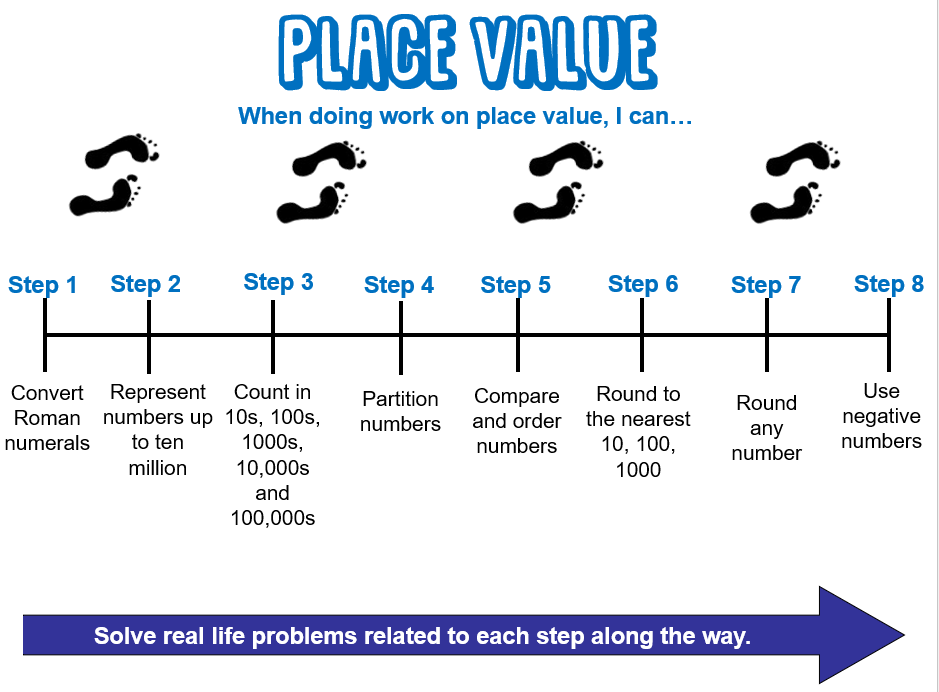
Addition and Subtraction
This unit reviews and extends children’s learning of how to add and subtract integers with any number of digits. Children use the formal column method for numbers with the same and different numbers of digits. They also practise mental strategies with both large and small numbers, using their understanding of place value.
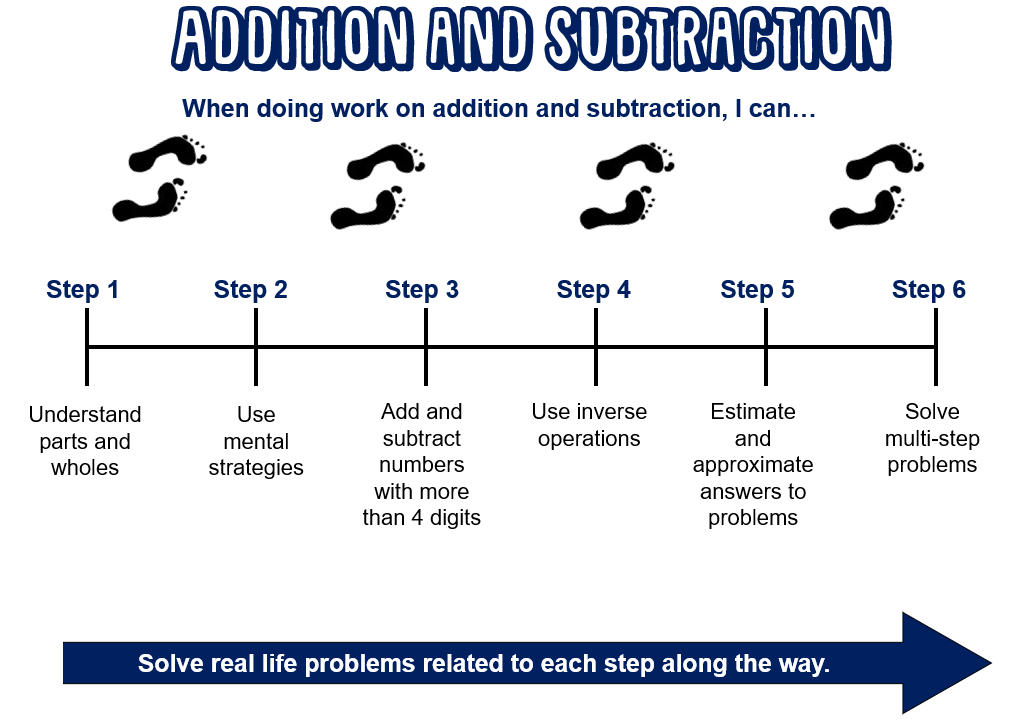
Science:
Our science unit is:
Forces
We will be learning about and investigating:
- How forces can be referred to as "pushes" or "pulls"
- How forces are measured
- Gravity
- Friction
- Air resistance
- Water resistance
- Floating and sinking
Below is our knowledge organiser for this unit:
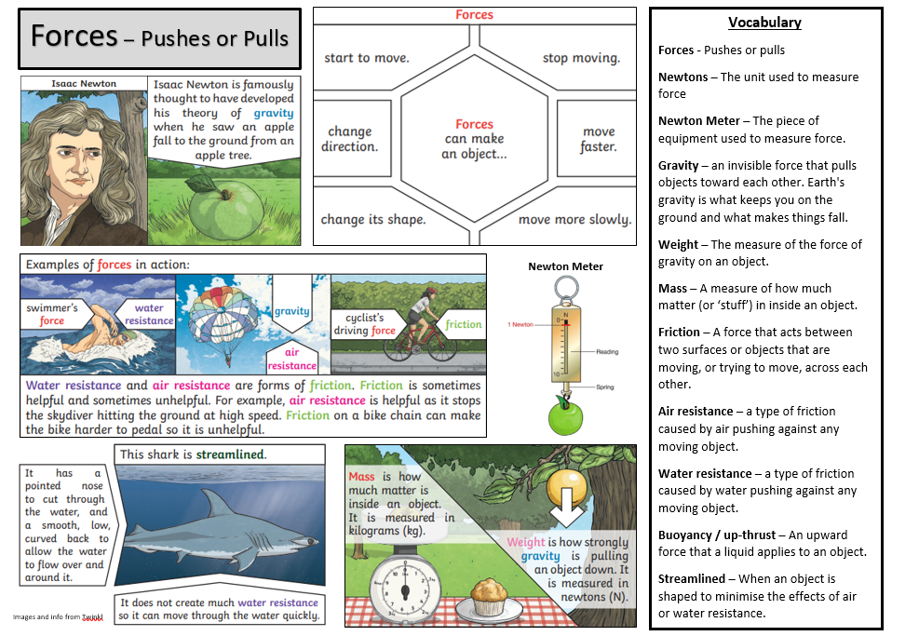
Other subject areas:
We will be learning about:
Art
Our focus in this unit is: Drawing 
In this unit, the medium for our artwork is charcoal. We will be analysing pieces of art and taking inspiration from "The Pitmen Painters" and a local mining artist, Duncan Pass, to create our own mining-related pieces.
PE
We will be working on: Personal and Social
In these units, the children will develop and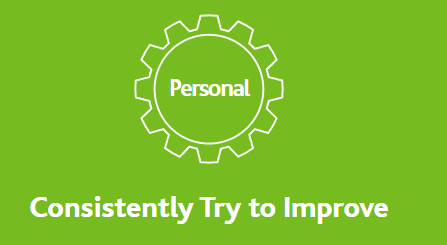 apply their ball skills and reaction and response as well as their dynamic balance on a line and counter balance through focused skill development sessions, modified/non-traditional games and sports and healthy competition. They will aim to cope
apply their ball skills and reaction and response as well as their dynamic balance on a line and counter balance through focused skill development sessions, modified/non-traditional games and sports and healthy competition. They will aim to cope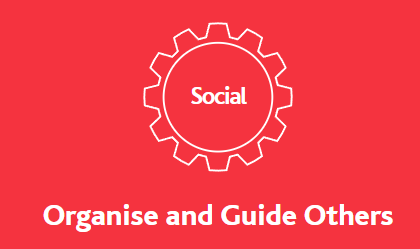 well and react positively when things become difficult and persevere with a task through regular practice whilst organising roles and responsibilities and guiding a small group through a task.
well and react positively when things become difficult and persevere with a task through regular practice whilst organising roles and responsibilities and guiding a small group through a task.
We will also be swimming each week. The national curriculum requires that children demonstrate the following swimming and water safety skills by the end of Year 6:
- Swim at least 25 meters confidently, competently, and proficiently
- Use a range of strokes effectively
- Perform safe self-rescue in various water-based situations
Religious Education (RE)
Our big question in this unit is: What does it mean to be a Muslim in Britain today?
In this unit, the children will make connections between Muslim practice of the Five Pillars and their beliefs about God and the Prophet Muhammad, describe and reflect on the significance of
the Holy Qur’an to Muslims, describe the forms of guidance a Muslim
uses and compare them to forms of guidance experienced by themselves and make connections between the key functions of the mosque and the beliefs of Muslims.
Here is our knowledge organiser:
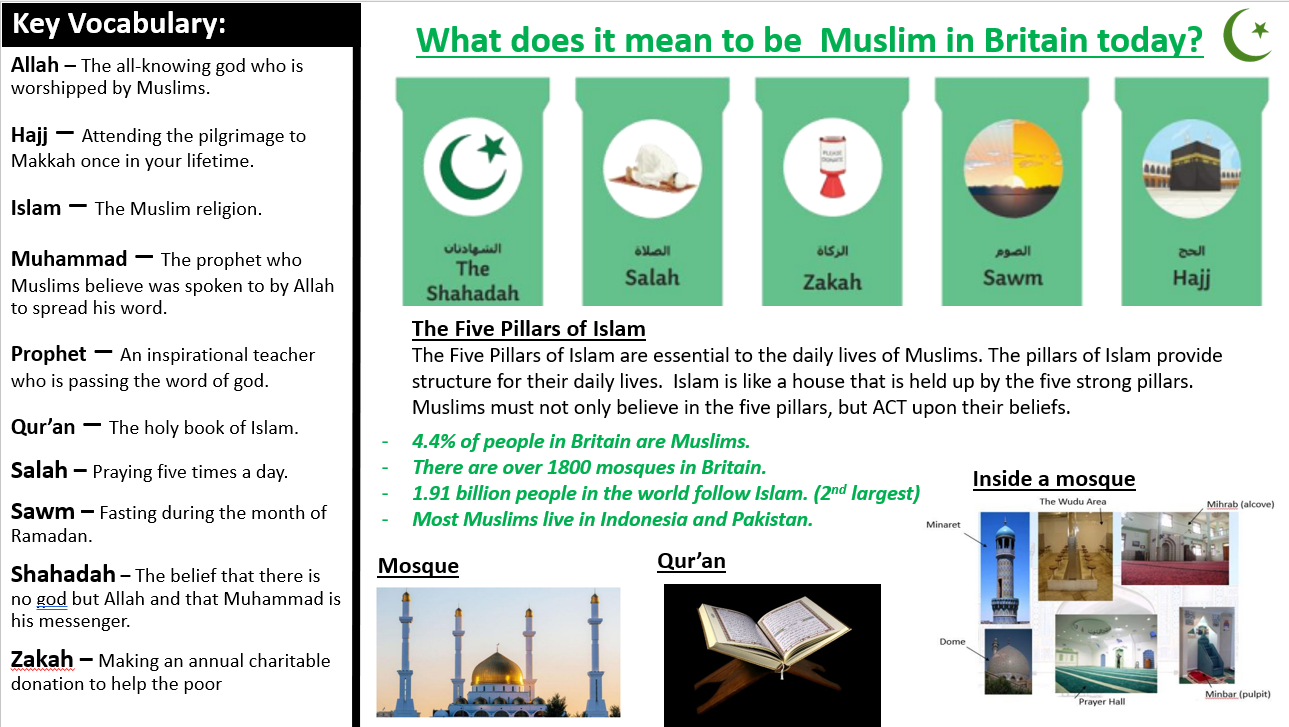
Personal, Social, Health and Economic education (PSHE)
We will be learning about: Exploring Emotions and Bullying Matters
Through these modules pupils will be able to:
- Explore emotions
- Recognise emotions
- Manage emotions
- Explain what direct, indirect, and cyberbullying means.
- Identify when banter or other behaviour becomes unkind.
- Analyse ways to identify and manage uncomfortable feelings online/ offline
- Explore the impact and consequences of bullying and discrimination, identifying positive ways to challenge it.
French
Our focus in this unit is: On Holiday
We will recap the learning in French so far whilst also learning the new vocabulary needed to describe where pupils are going on holiday, where they're staying and how long they're staying. It also includes a variety of attractions they might encounter on holiday.
Computing
In this unit, we will be:
- Understanding systems and networks.
- Creating digital media, such as educational videos about coal and a brochure for the school play. Children will ensure these are created for specific audiences and purposes with appropriate language, layout and format.
- Using Scratch, to code our own electronic quizzes for other children and parents to test their knowledge!
Project Evolve
In this unit, we will be learning how to manage our online information.
The ProjectEVOLVE toolkit covers knowledge, skills, behaviours and attitudes across eight strands of our online lives from early years right through to eighteen and are areas that we discuss with children as they develop their use of online technology.
Music
We will beginning our music lessons in the new year!
Design and Technology (DT)
We will be beginning our first DT unit in the new year!
Theme 2 - Autumn 2 2024 - Spring 1 2025:
‘Traders and Raiders - After the Romans to 1066’ (10 weeks)
Over the next 10 weeks, our class will be learning about the period of British history from the time after the Romans up to the battle of Hastings in 1066. This was a time of great change and chaos as an abundance of settlers and invaders migrated to the land we now call “England”.
We will learn:
- About why the Romans left Britain
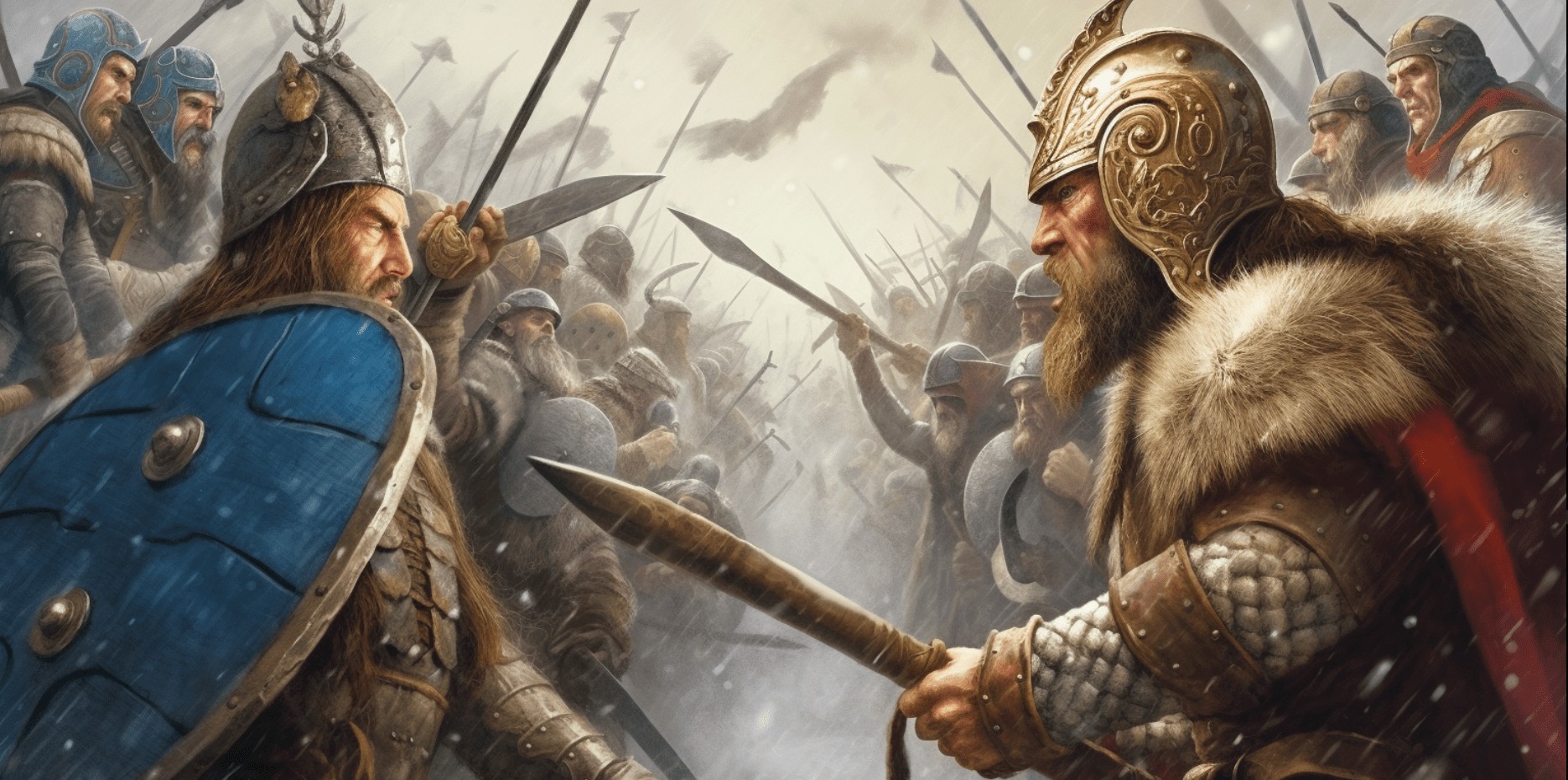
- To compare the migration of people in the present day to people during this period
- About who the Anglo-Saxons were and why they settled in Britain
- About what we have learnt from the Anglo-Saxons
- About the impact of Viking invasions
- About Anglo-Saxon manuscripts and illuminated letters
Below is a knowledge organiser showing the key areas of learning you should aim to know by the end of the topic. Click on the link below to see our knowledge organiser for the topic.
Knowledge Organiser - Traders and Raiders (PDF)
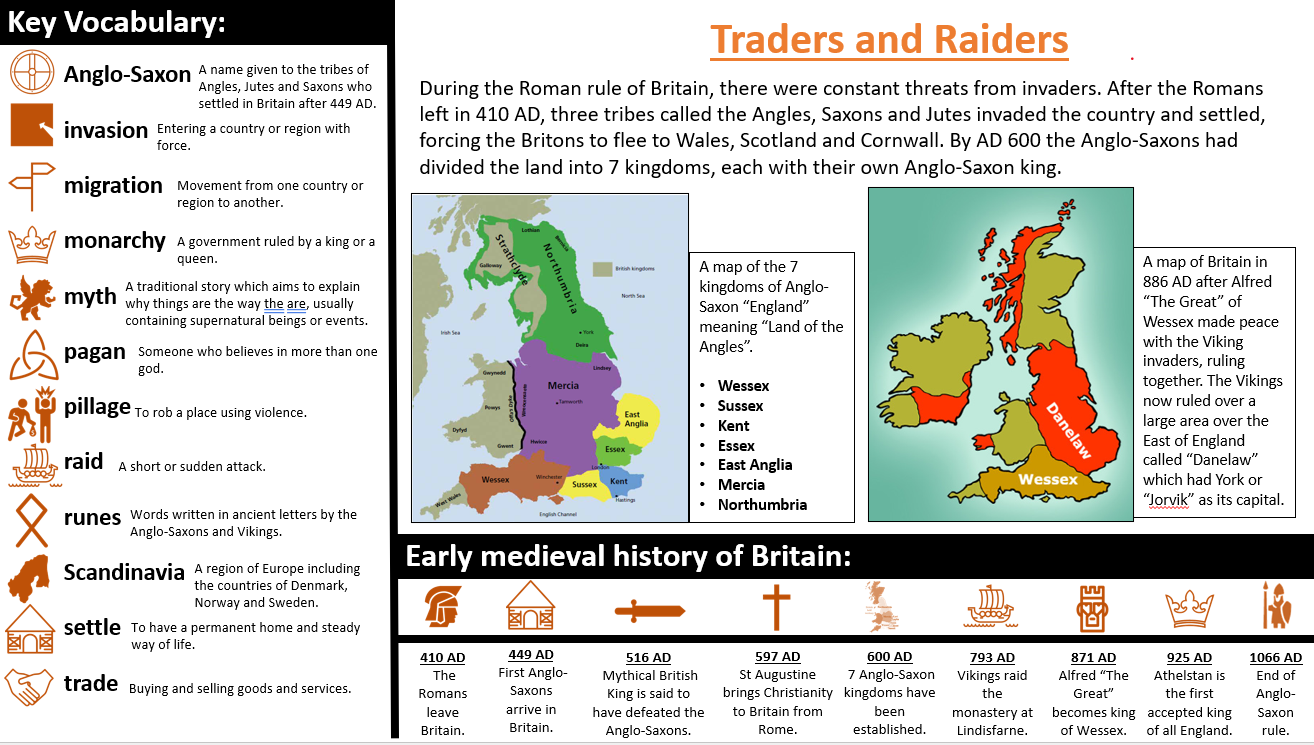
Maths
We will be learning about:
Multiplication and division
The second half of our four operations unit involves children deepening their understanding of multiplication and division. The focus on mastering the multiplication tables up to 12x12, employing efficient mental and written mental and written methods for larger numbers, and exploring factors, multiples, and prime numbers. This unit also emphasises the application of these skills in problem-solving, helping pupils build a solid foundation for more advanced mathematical concepts. By the end of Year 6, children are confident in their abilities to tackle various challenges in a range of contexts.
Below is our learning journey and the small steps we cover for this unit.
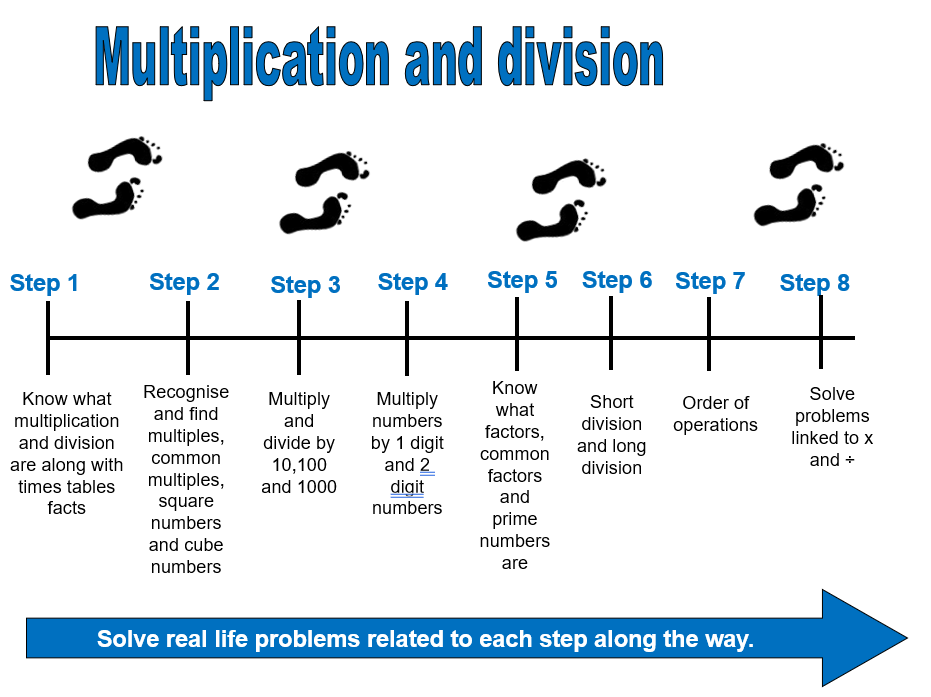
Fractions
In this unit, children will expand their knowledge of fractions. They learn to simplify, compare, and order fractions as well as convert between mixed numbers and improper fractions. This unit covers addition, subtraction, multiplication, and division of fractions before the introduction of decimals and percentages. By the end of Year 6, students gain a robust understanding of fractions, preparing them for more complex mathematical operations.
Below is our learning journey and the small steps we cover for this unit.
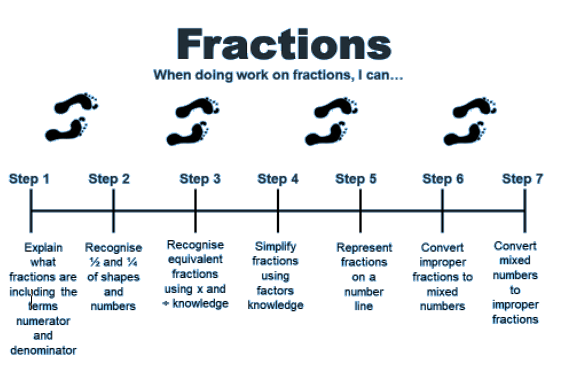
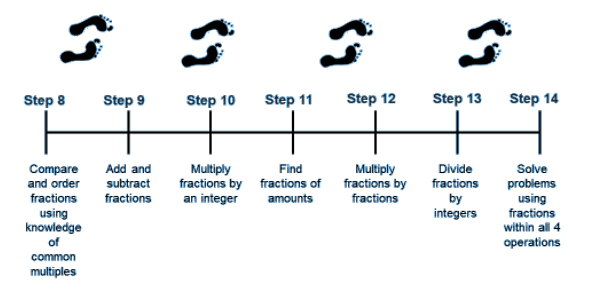
Science
Our science unit is:
Earth and Space
We will be learning about:
- The Solar System
- The rotation of the Earth
- Night and day
- The moon and its phases
- Timezones
- Tim Peake / Helen Sharman / Galileo / Ptolemy
Below is our knowledge organiser for this unit:
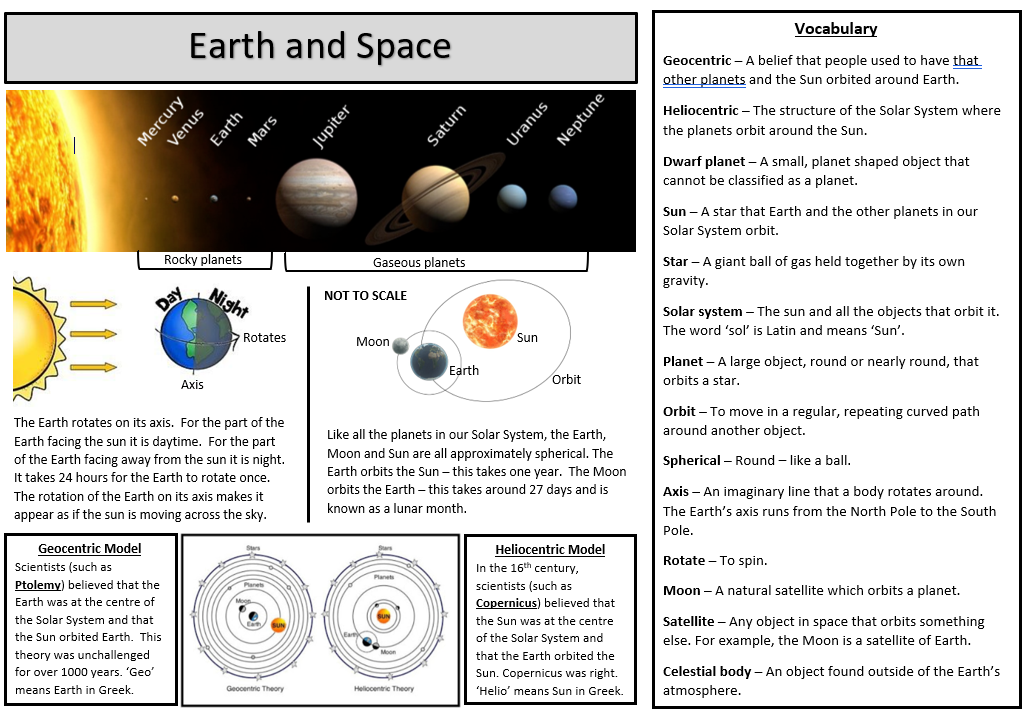
Other subject areas:
Art
Our focus in this unit is: Sculpture 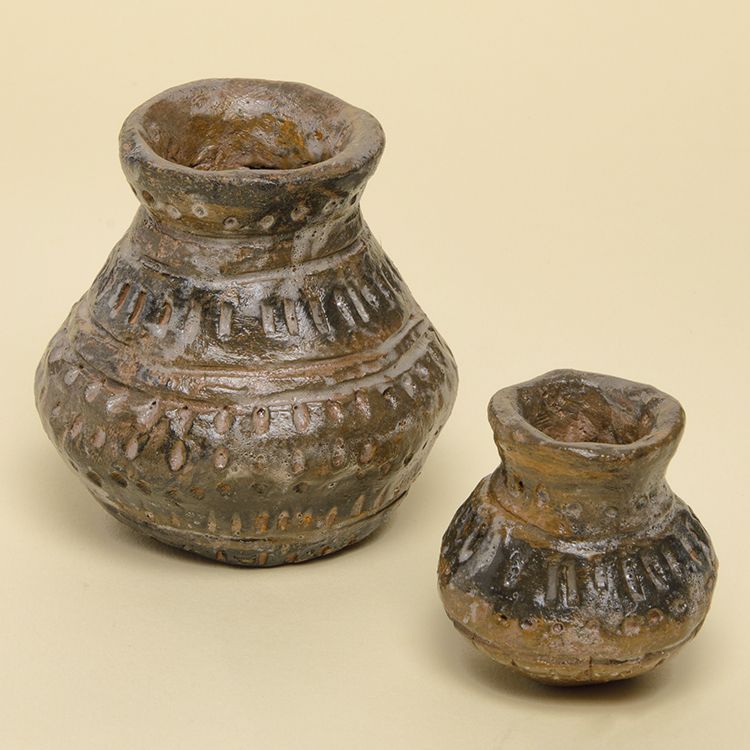
In this unit, the medium for our artwork is clay. We will be rolling, adding texture, smoothing, joining, depth and carving clay with a range of tools and taking inspiration from Anglo-Saxon pottery for our own creations.
PE
We will be working on: Cognitive and Creative 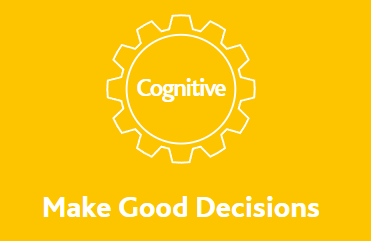
In these units, the children will be learning how to develop their awareness of space / others to make good decisions and how to change tactics, rules or activities to make them more fun or more challenging. They will also develop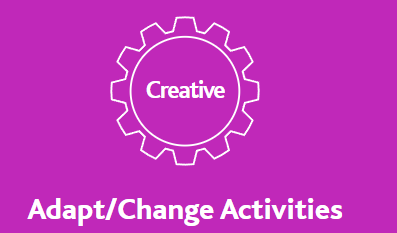 their stance and footwork along with their floor work balance through focused skill development sessions, modified/non-traditional games and sports and healthy competition.
their stance and footwork along with their floor work balance through focused skill development sessions, modified/non-traditional games and sports and healthy competition.
We will also be swimming each week until the end of February. The national curriculum requires that children demonstrate the following swimming and water safety skills by the end of Year 6:
- Swim at least 25 meters confidently, competently, and proficiently
- Use a range of strokes effectively
- Perform safe self-rescue in various water-based situations
Religious Education (RE)
Our big question in this unit is: What difference does it make to believe in Ahimsa, Grace and/or Ummah?
In this unit, the children will enable pupils to learn in depth from different religious and spiritual ways of life through exploring three important ideas from three different religions in ways that relate to commitment. They will utline the challenges of being a Hindu, Christian or Muslim in Britain today and consider similarities and differences between beliefs and behaviour in different faiths.
Here is our knowledge organiser:
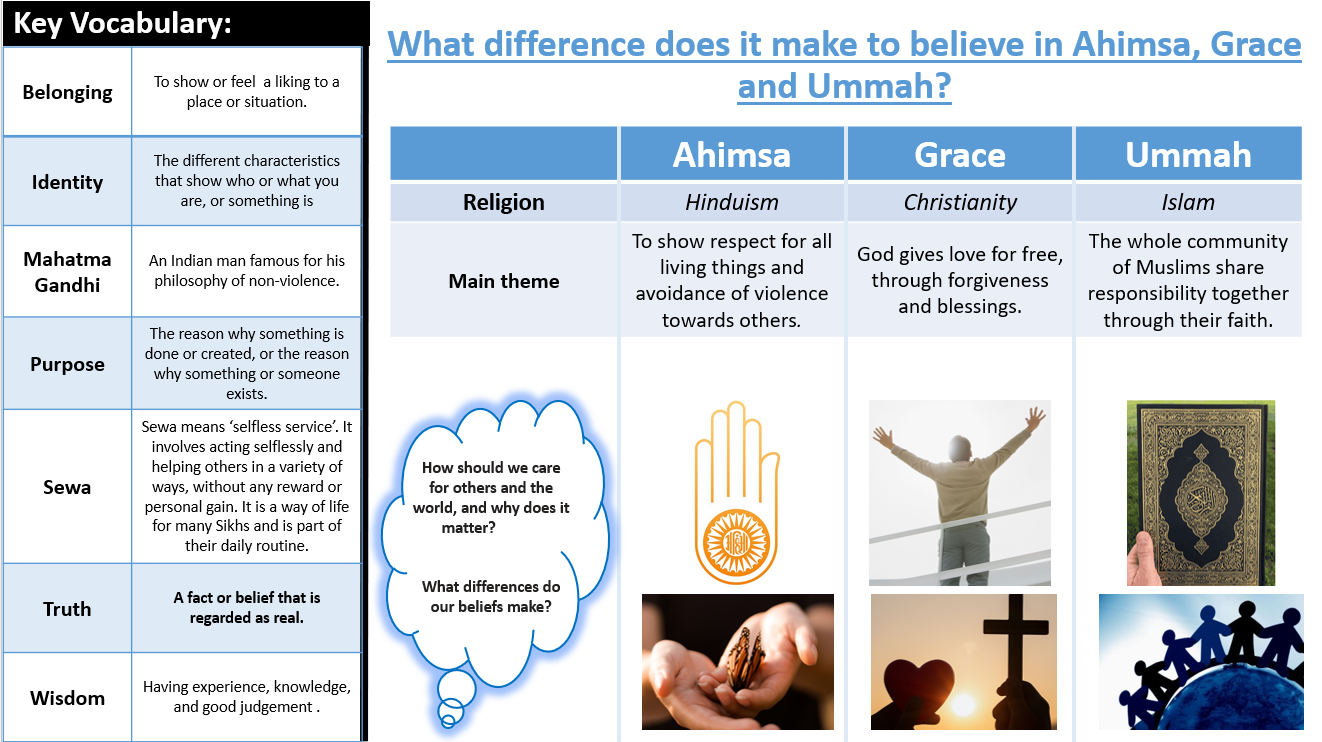
Personal, Social, Health and Economic education (PSHE)
We will be learning about: Relationships
Through these modules pupils will be able to:
- Reflect on what the qualities of a good friendship/ relationship are and are not.
- Identify and apply strategies that support healthy friendships.
- Use strategies to manage peer influence and the need for peer approval.
- Explore what a loving caring relationship means.
- Understand what marriage and civil partnership means.
- Understand that forced marriage is a crime.
- Use strategies to positively resolve disputes and reconcile differences in friendships.
- Explain when and how to seek advice if family, friendship, or relationships make them unhappy through a range of options.
French
Our focus in this unit is:
We will
Computing
In this unit, we will explore the concept of selection in programming through the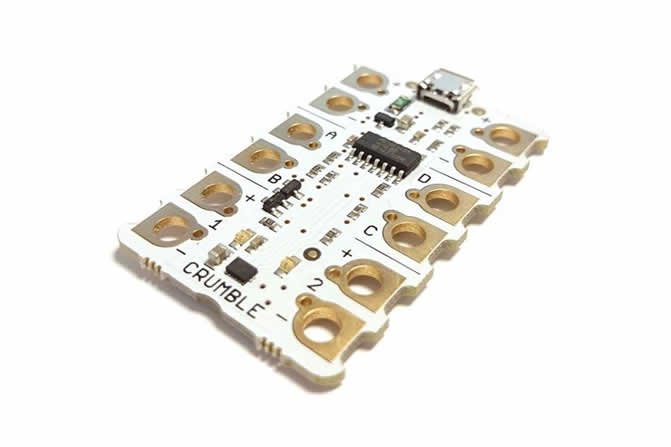 use of the Crumble programming environment. Children will be introduced to a microcontroller (Crumble controller) and learn how to connect and program components (including output devices- LEDs and motors) through the application of their existing programming knowledge.
use of the Crumble programming environment. Children will be introduced to a microcontroller (Crumble controller) and learn how to connect and program components (including output devices- LEDs and motors) through the application of their existing programming knowledge.
Project Evolve
In this unit, we will be learning about: online reputation and copyright
The ProjectEVOLVE toolkit covers knowledge, skills, behaviours and attitudes across eight strands of our online lives from early years right through to eighteen and are areas that we discuss with children as they develop their use of online technology.
Music
After February, we will beginning our music lessons with the Derby and Derbyshire Music Partnership.
The Music Partnership is led by a School Improvement Adviser and a Curriculum Consultant who share a wealth of knowledge and experience in music education and ensure that all programmes and services are of high quality.
Our instrument we will be learning is: Flute
Design and Technology (DT)
We will be beginning our first DT later this year!
Theme 3 - Spring 2 and Summer 1 2025:
'Road Trip: USA!’
This term we learnt about the third largest nation on Earth: The United States of America. The USA is a diverse, multi-cultural country; its economy is the largest in the world. During this topic we wrote travel brochures for someone who wanted to visit this amazing country.
We learnt about the country's:
- States and regions
- Climates, biomes and landscapes
- Famous cities, landmarks and attractions
- National parks
- History - In relation to the Native Americans and European colonisation.
Below is a knowledge organiser showing the key areas of learning you should aim to know by the end of the topic. Click on the link below to see our knowledge organiser for the topic.
Theme 4 - Summer Term 2025:
‘Healthy Bodies, Healthy Minds'
In this term we learnt about what it means to be healthy – both in body and mind! The children learnt about the impact of diet and exercise on the body and will also be focusing on ways to manage their mental health. These are areas which have never been more important as a result of the Covid-19 pandemic. As part of their work with food, the children will be taught how to cook and apply the principles of nutrition and healthy eating. Instilling a love of cooking in pupils will also open a door to one of the great expressions of human creativity. Learning how to cook is a crucial life skill that enables pupils to feed themselves and others affordably and well, now and in later life.
We will be learning about:
- The circulatory system
- The impact of exercise, diet, drugs and lifestyle on the body
- The risks associated with not having a healthy balanced diet
- How to cook a healthy, savoury dish using: frying, mashing, cutting, grating, boiling and simmering techniques.
- Mental health - What it is and how things can have a positive and negative impact on this.
- Habits - Both positive and negative
- The impact of social media on mental health, including online safety.
Below is a knowledge organiser showing the key areas of learning you should aim to know by the end of the topic. Click on the link below to see our knowledge organiser for the topic.
Our themes for 2025-2026:
Theme 1 - Autumn Term 2025:
‘Heroes and Villains - WW2’
Our first curriculum theme is called: “Heroes and Villains”. In Class 4, this means learning about the causes and consequences of WW2. World War II, also called the Second World War was a conflict that involved virtually every part of the world during the years 1939–45. The principal belligerents were the Axis powers—Germany, Italy, and Japan—and the Allies—France, Great Britain, the United States, the Soviet Union, and, to a lesser extent, China.
The war was in many respects a continuation of the disputes left unsettled by World War I. The 40,000,000–50,000,000 deaths incurred in World War II make it the bloodiest conflict, as well as the largest war, in history. Recent events in the news make an understanding of power, conflict and propaganda essential aspects of the history curriculum.
In science, we will be focusing on computer science where we will explore the concept of variables in programming through games in Scratch. We will find out what variables are and relate them to real-world examples of values that can be set and changed.
Theme 2 - Autumn 2 2023 and Spring 1 2025:
‘Improve Our World - Antarctica’
Our next curriculum theme is called: “Improve Our World”. In Class 4, this means learning about Climate Change, Global Warming and the polar regions of the Arctic and Antarctic. Our generation of young people are more interested than ever before about sustainability, climate change and doing the right thing for our planet. Also in this topic, we will be reading the book “Shackleton’s Journey” and learning about Sir Ernest Shackleton, one of the most inspirational polar explorers in history, who never actually reached his goal - the South Pole. We will be writing our own narratives based on his inspirational journey.
Theme 3 - Spring 2 and Summer 1 2026:
'Who makes the rules? Crime and Punishment’
Our next curriculum theme is called: “Who Makes the Rules?” In Class 4, this means learning about the history of crime and punishment in Britain since 1066. In this history topic we will be sensitively analysing the causes, consequences and changes to the laws made during the Roman, Anglo-Saxon, Medieval, Tudor, Victorian and modern-day periods as well as debating and discussing which types of punishments are most effective and which time period would’ve been the worst time to be a criminal.
In Science, we will be learning about light. The children will consolidate their knowledge of light gained in Class 3. They extend this understanding by learning about how light travels in straight lines. They will learn how we see, by understanding light travels from the light source to an object and then reflects to our eyes. Children consider why shadows have the same shape as the object that made them. Children may also explore rainbows, colours in bubbles and light appearing to bend in water.
Below is a knowledge organiser showing the key areas of learning you should aim to know by the end of the topic.
Theme 4 - Summer Term 2026:
‘Living in the Past - Ancient Greece'
Our final curriculum theme of the year is called: “Living in the past”. In Class 4, this means learning about the culture and achievements of the Ancient Greek civilization. The ancient Greek civilisation have had a huge impact on our modern culture and we will be primary and secondary sources to understand what life was like in this period and name some ancient Greek ideas and developments that still influence us today. During the topic we will also be comparing the achievements of the city-states of Sparta and Athens, learning about the Greek's polytheistic beliefs and using this knowledge to inspire our own Greek myths.
In science, we will be learning about evolution and inheritance. Evolution is the way that living things change over time. The first person who explained how evolution happens was Charles Darwin with his scientific theory of natural selection. This theory is widely regarded to be one of the most ground-breaking ideas in human history.




